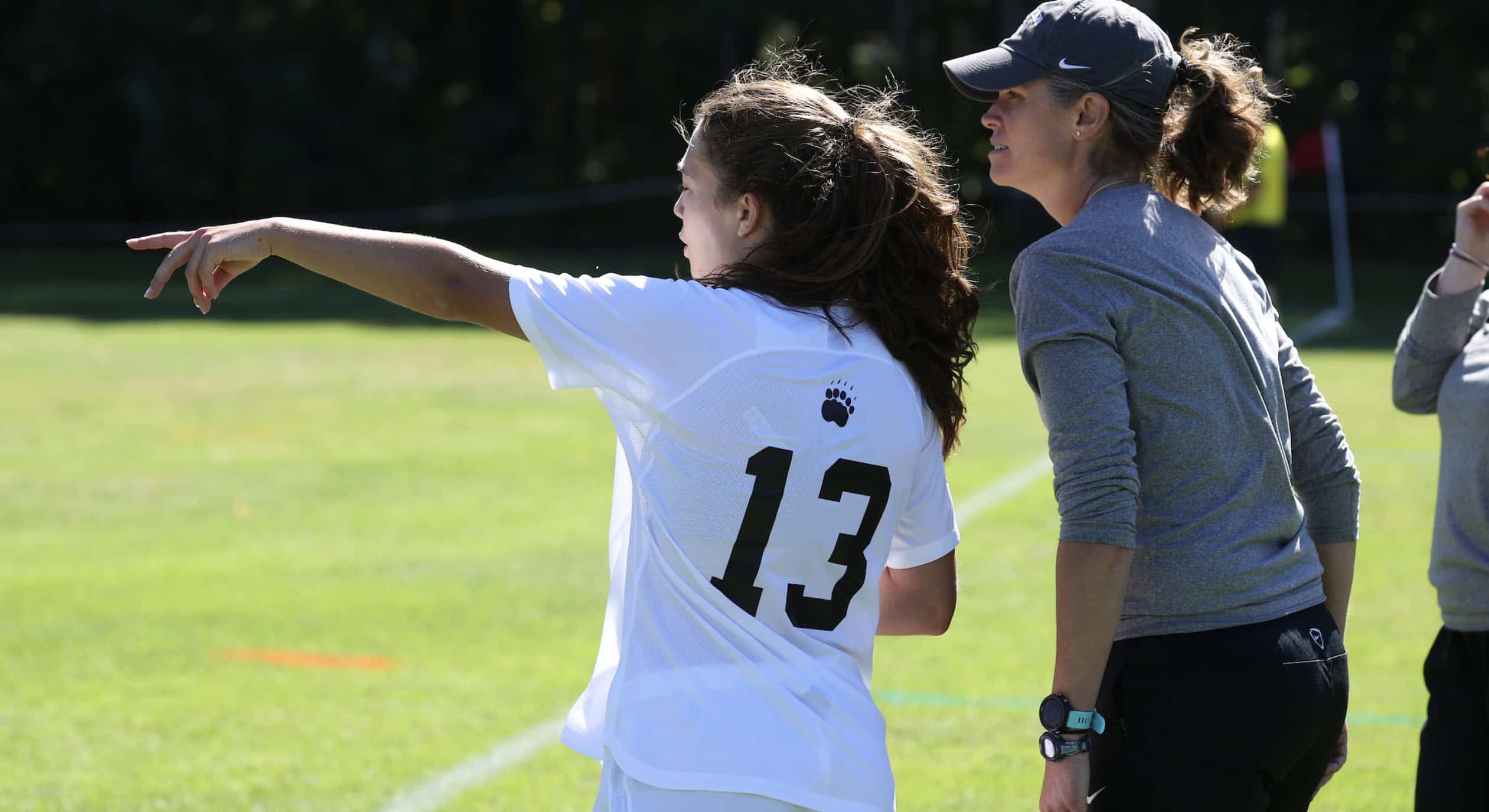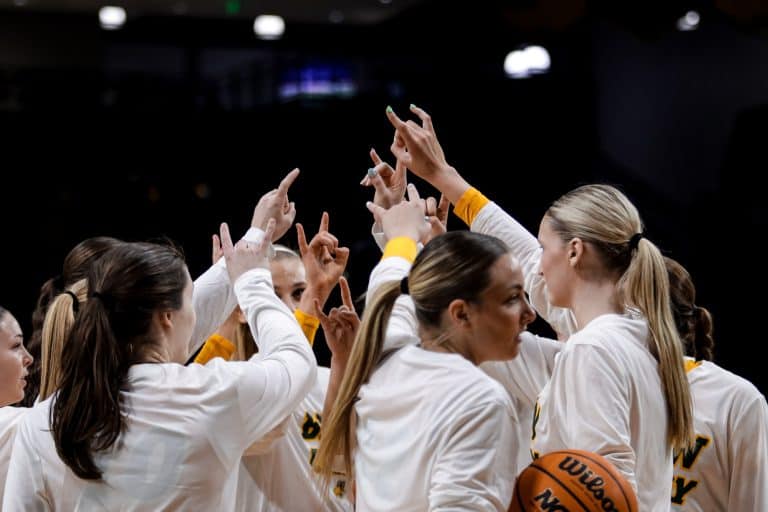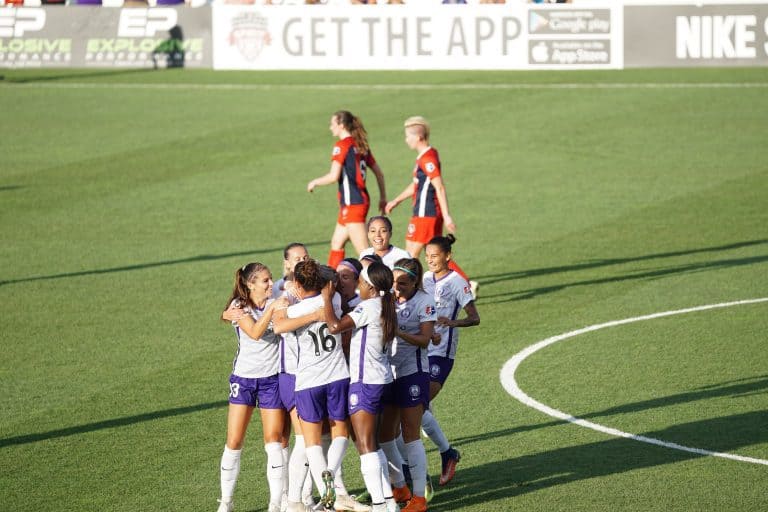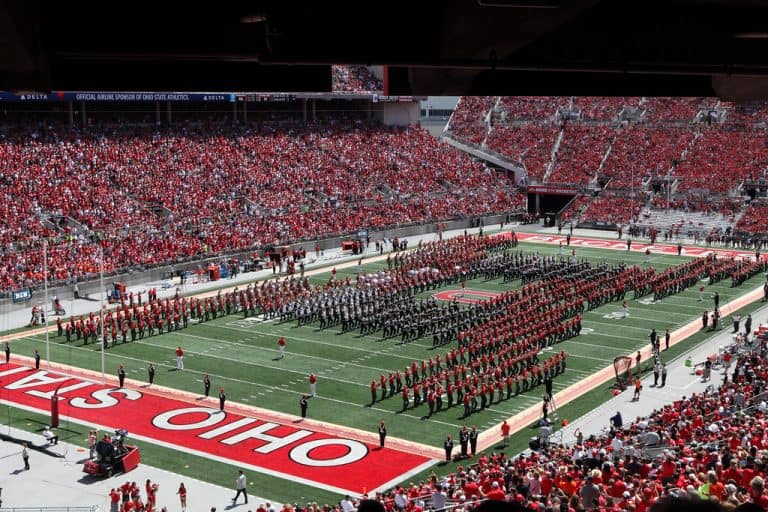In the world of collegiate athletics, few coaches can claim a career as enduring and impactful as Brianne Smithson, Head Coach of the Bowdoin Women’s Soccer program. With a journey that began unexpectedly at 16, Brianne’s coaching career has evolved over 25 years into a masterclass on fostering teamwork, cultivating resilience, and, above all, understanding the importance of the people side of sport.
Brianne’s entry into coaching was one of serendipity. Reflecting on the moment that ignited her coaching passion, she recalled,
“I got into coaching completely by accident. I was 16 years old, driving my younger brother to his soccer game, and his coach didn’t show up. The parents knew that I played soccer, and they said, ‘Can you please coach the boys today?’
I said, ‘Sure.’ We won, and then I was hooked.”
From that unexpected beginning, Brianne immediately set her sights on becoming a coach. She continued, “I started working toward getting my coaching licenses. I just loved the game, kept following it, played in college, simultaneously was also refereeing and coaching. I was very fortunate to get my first coaching job the semester after I graduated from college. I started coaching, and I think I’m going into my 25th year.”
For Brianne, the journey from novice coach to experienced leader has been one of continual growth, particularly in understanding the human side of coaching. “When you first get into coaching, you’re attracted to the sport, right? The idea of competition, and let’s go out and be the best we can be on the day,” she shared. “But the longer you do it, the more you realize it’s really about the people.”
Brianne attributes much of this personal evolution to tools like DISC, which she introduced to her team in 2017.
“Athlete Assessments have been incredibly helpful in that journey. It helped me realize that while I can have high standards and goals for the team, if I don’t understand the people side of it, we’re actually not going to get there.”
This shift toward focusing on people has fundamentally transformed her approach. “I’ve certainly made mistakes along the way, but focusing on the people has made coaching far more rewarding. As a coach, you have to pay attention to who your athletes are as individuals—not just their performance on the field, but what drives them, what challenges them, and how they interact as part of a team,”
Under Brianne’s guidance, the Bowdoin Women’s Soccer program has become known not just for its on-field success but for its strong team culture. Last season, the team made history with one of their best finishes yet. But, as Brianne explains, that success wasn’t an overnight achievement. “It wasn’t just one thing last year. We built toward that success for a long time, and I think it goes way back to the foundation of the program. So many things had to fall into place and be built upon in order to produce that result. There’s no magic wand, and that’s what makes it rewarding at the same time.”
“Some of the things I think about are the hard work behind the curtain that players and staff alike put into everything – our culture, recruiting, training sessions, off-season workouts, nutrition, teamwork, team bonding, understanding each other, our academics, all of it. It was a work in progress for years.”
At the heart of that success is a student-led culture, which Brianne believes is key to developing strong, resilient teams. “I feel the most powerful programs are student-led. The coach is there to guide, but it’s really about empowering the student-athletes to take ownership, hold each other accountable, and lift each other up,” she explained.
But for Brianne, a strong culture is never something to be taken for granted.
“I tell people who ask about our culture—it’s great, but it’s something we work on every single day. I never take it for granted. Culture, especially in a competitive environment, is something that needs to be worked on very thoughtfully. Some things happen organically, but some things need to be attended to in a more systematic way.”
Brianne’s commitment to understanding the people side of coaching was further deepened by her introduction to Athlete Assessments’ DISC Behavioral Profiling. Since implementing it with her team in 2017, she has seen how it transforms not only her players but also her approach to coaching. “It’s helped me enormously,” she said. “I was fortunate enough to work with Liz Masen at the NCAA Women’s Coaches Academy, and she introduced DISC to me. It was a lightbulb moment. I’d done personality tests before, but I never thought about the controllable piece: the behavior.”
For the student-athletes, DISC has become an important part of their personal and team development, helping them understand how they behave, what they contribute to the team, and how to work best with their teammates. “New players come in, and they’re learning about themselves at such a critical moment in their personal development,” Brianne shared. “The more exposure they have to it, the better they understand it and realize how powerful it can be. As each year goes by, they can step outside of themselves and see from a slightly bigger lens.”
She recalled how the team has embraced DISC with a sense of humor, often using the letters to describe each other’s behavior. “They’ll say, ‘Oh, well, she’s a D, no wonder she’s acting that way,’ and laugh. But through that humor, they’re grasping the behavior patterns and learning to work together despite differences.”
As Brianne looks ahead to the upcoming season, her focus remains on maintaining momentum and continuing to develop the team’s culture. “We’ve had a taste of competing at the national level, and we all want to keep that momentum going. But every year is different, so I focus on what we can control—working hard, supporting each other, and sticking to our values.”
Brianne’s journey from accidental coach to seasoned leader has been one defined by growth, reflection, and a deepening understanding of the importance of people.
Her advice to other coaches? Understand the importance of the people side.
“It’s such a gift to be able to work with athletes and teams. I don’t think I always understood how important the people side of it really is, and to treat those interactions as huge opportunities to change someone’s life – and to have them possibly change yours.”
As Brianne continues her journey, one thing is clear: her commitment to empowering her players, building a strong culture, and focusing on the people side will remain at the heart of everything she does.
WHERE TO FROM HERE?
If Brianne’s approach to coaching and building a strong team culture has sparked your interest, there’s more to explore! Dive deeper into how tools like Athlete Assessments’ DISC Profiles, specifically designed for sport, can help transform your team’s culture and enhance self-awareness. Learn how understanding behavior can empower both coaches and athletes to create a winning team environment, foster better communication, and elevate performance.
Recommended Articles
North Dakota State University Women’s Basketball Assistant Coach, Michaela Everett on managing change and challenges, while living the team’s values and upholding your culture.
Creating and maintaining an effective team culture is critical to sustained success. So, if we define culture simply as ‘the way we behave around here’, we need to determine what is acceptable and what is not? But then as a coach, how do you sustain a culture or how do you deal with an athlete who acts in a way that opposes the culture you want?
What do a six-time Olympian, former NFL player, national level gymnastics coach, and an aspiring Athletic Director have in common? If you guessed they might all be sporting A-listers, you’re very close, try just some of the Ohio State University Masters of Sport Coaching current class list.









